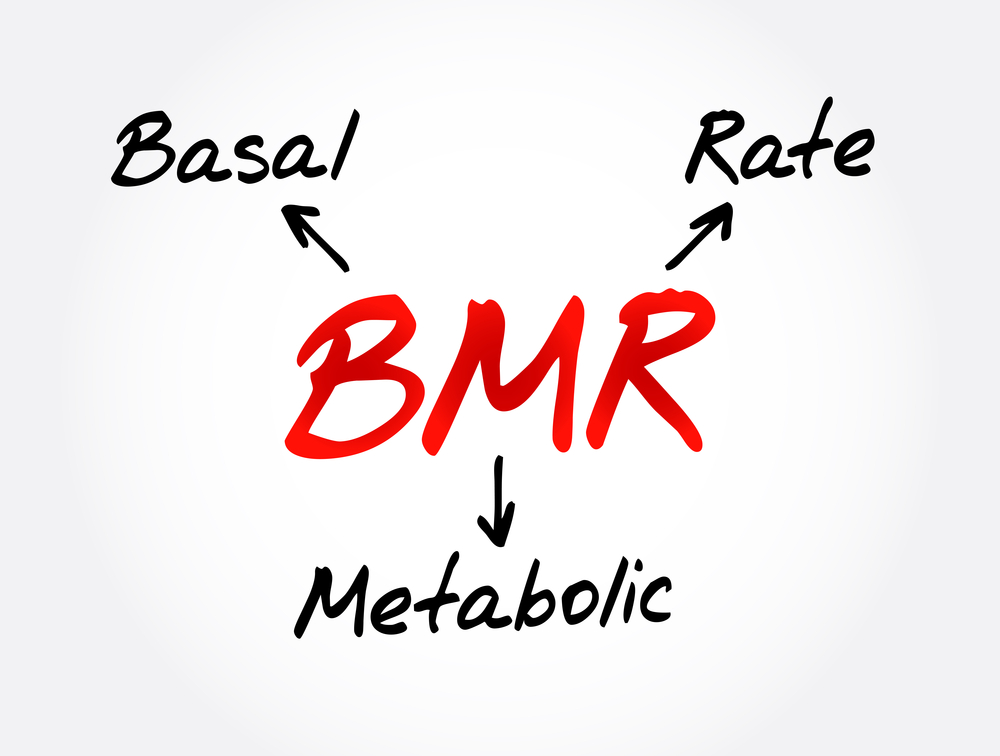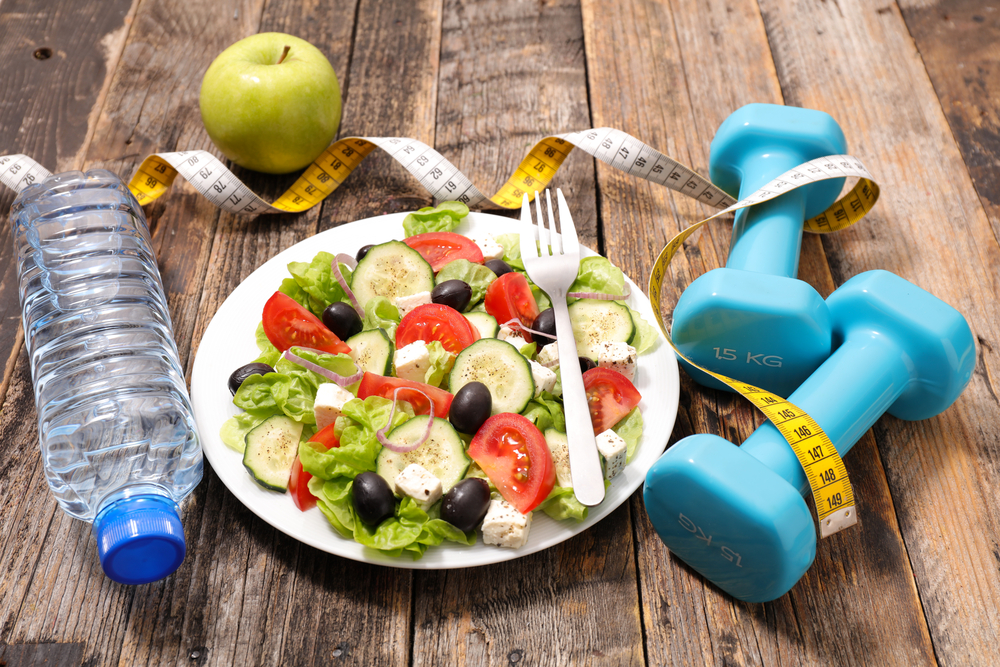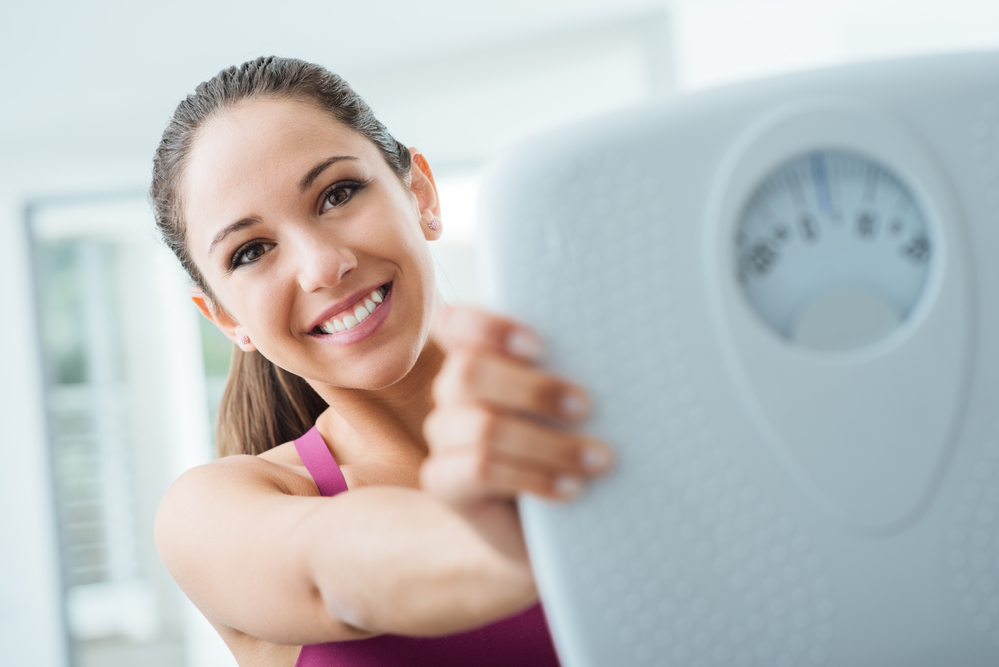Calories Burned While Sleeping/Can You Burn Calories Sleeping?
Last Updated: February, 2026
Please Note: This Post Contains Affiliate Links
Click To Expand Table of Contents
Can you burn calories while sleeping? This is a question most people trying to lose some weight are likely to want answered. After all, lifting weights can be a tiresome and stressful way of shedding some calories. Well, contrary to popular beliefs, our bodies are always burning calories even when we're fast asleep.
That said, can sleep really help you lose weight, and if so, does it mean you should now start getting more hours of sleep?
Whether you're having trouble with body weight management and fat loss or you're simply curious, we've got you covered. In this article, we'll discuss everything you need to know about burning calories while at rest, including how many calories you can burn per night and the factors that influence metabolism. We'll also provide useful insights on optimizing your calorie expenditure to help you achieve your weight goals.
Understanding Basal Metabolic Rate (BMR)

Basal Metabolic Rate is basically the measure of the amount of calories your body needs for essential functions when at rest, such as breathing, cell production, and protein synthesis. BMR is crucial as it accounts for about 70% of your daily calorie expenditure. Understanding Basal Metabolic Rate can help one manage their diet and exercise routine better to hit body weight management targets.
What Factors Influence the Basal Metabolic Rate?
Several factors affect the amount of calories we burn while sleeping or doing other activities. They include:
- Hormones and medical conditions: Pregnancy, menopause, hyperthyroidism and other medical conditions can lower or raise your BMR. We recommend consulting your health practitioner if you think an underlying condition might be affecting your metabolism.
- Genetics: Some individuals are born with faster metabolism while others have slower metabolism.
- Gender: Unlike women, men have a lower body fat percentage and a greater muscle mass, which translates to a higher BMR. Plus, the BMR of women decreases more rapidly between the ages of 5 - 17 than that of men.
- Height and weight: The larger your body is, the more calories it needs to function.
- Age: Growing kids usually have a higher metabolism compared to adults.
- Exercise: In addition to burning calories, physical exercise helps raise basal metabolic rate by building extra lean tissue. This is because lean tissues are more metabolically demanding compared to fat tissues, meaning more calories get burned even when sleeping. If you're not physically active, you may burn fewer calories compared to athletes and active individuals.
- Diet: Starvation or severe, abrupt calorie reduction can drastically minimize BMR by up to 30%. By taking restrictive low-calorie weight loss diets, you may minimize your BMR by about 20%.
- Sleep quality: Poor sleep quality generally has a detrimental effect on metabolism.
How Do You Calculate BMR?
To calculate your precise BMR, you need the help of a calorimeter, which takes into account the energy being consumed by analyzing the air you're inhaling and exhaling. While this instrument usually gives the most accurate BMR reading, you'll have to go to the lab, fast for 12 hours, stay for 24 hours without exercising, and sleep for about 8 hours before the reading. One of the main reasons why you have to observe these rules is that exercising and digestion are energy-hungry procedures that significantly influence metabolism. The reading is usually taken in a dark and temperature-controlled setting.
Because of the complex nature of this test and the expenses involved, it's impractical for the average individual to get one done. That's where formulas, such as the Harris-Benedict equation, come in. This formula takes into account factors like height, weight, age, and gender to give a rough estimate of the energy expenditure at rest.
Here's how you can calculate the BMR of men and women using the Harris-Benedict formula:
Male: BMR = 66.5 + (5 x height in cm) + (13.8 x weight in kg) - (6.8 x age in years)
Female: BMR = 655 + (1.8 x height in cm) + (9.6 x weight in kg) - (4.7 x age in years)
The results show the basal metabolic rate over a 24-hour period. To get your hourly BMR when sleeping, you'll have to divide the results by 24, which gives you the hourly rate, and then multiply the answer by 0.85. What you get will be a lower metabolic rate while sleeping.
While the Harris-Benedict equation is different between men and women, it doesn't factor in hormones, genetics, or muscle-to-fat ratio. To get an estimate of your muscle-to-fat ratio, you can follow the below formula:
BMI = weight (pounds) / [height (inches)] x 703
If your Body Mass Index is more than 25, it is considered overweight, and if it is less than 18.5, it is considered underweight. That said, for Asian and Asian American ethnicities, a BMI of more than 22.9 is considered overweight. Keep in mind that this BMI formula may not give an accurate reading for individuals with an atypical body composition, such as bodybuilders.
Alternatively, you can use calorie calculators on the internet to get your basal metabolic rate. These calculators will only ask you to provide details like your weight and hours you slept, so you won't even have to know any formula to calculate the amount of calories you burn while asleep.
Another perfect alternative is using a calorie tracker app and a smart device. All you need to do is get a smartwatch, download its corresponding application, and then wear it when you go to bed until morning. These devices have an accelerometer that helps detect movements. They also come with heart rate monitoring sensors to monitor the sleeper's heart rate as they sleep.
So, How Many Calories Do We Burn During Sleep?

On average, an adult burns approximately 50 calories per hour during sleep. Therefore, for a full night's sleep of, let's say, 8 hours, that'd be about 400 calories burned. Note that the exact number can vary depending on factors like your body weight and metabolic rate. As we'll discuss further below, it's worth noting that sleep burns fewer calories compared to sitting at room temperature while not digesting food. This makes it one of the activities with the lowest calorie burn.
Calories Burned While Sleeping Vs. Calories Burned While Sitting: Is There Any Difference?
Yes, there's a big difference between the amount of calories you burn while sleeping compared to the calories burned while sitting. As mentioned earlier, the number of calories burned while resting depends on various factors like sleep duration, body weight, and metabolism. On average, if you weigh 125 pounds, you'll burn about 38 calories per hour sleeping.
When it comes to sitting, an average person burns about 90 - 150 calories per hour based on the specific activity the person is doing while sitting. Generally, this is more than what you can burn while sleeping since even light activities when sitting, such as watching TV or fidgeting with your hands, engage more muscles compared to when your body is at rest at night.
Calories and Sleep Stages
Different stages of sleep burn different amounts of calories throughout the night. Generally, the amount of calories you burn at a certain stage depends on the amount of energy needed by your brain to perform basic body functions. For instance, during rapid eye movement (REM) sleep, which is the most energy-intensive sleep stage, the heart rate increases, and the brain exhibits activity patterns that resemble daytime levels. And since the heightened brain activity during REM sleep needs more glucose, more calories are burned during this sleep stage.
On the other hand, during deep sleep, the blood pressure drops and respiration, heart rate, body temperature, and brain activity slow down. While this is when the body releases growth hormones, the brain only needs less glucose for these activities, so fewer calories get burned in the process.
How to Maximize Calorie Burn During Sleep

Generally, to maximize calorie burn while sleeping, you'll have to increase your BMR. And what an easy way of doing this than to eat right, get enough exercise, and sleep well. Ready to increase your energy expenditure while sleeping? Let's take a look at these tips in great detail.
Eating Right
While no diet routine has been proven to increase the amount of calories an individual burns while asleep, healthy eating can improve overall sleep quality, which may help you burn more calories in the long run.
So, what do we exactly mean when we say eating right?
Well, for starters, you want to ensure that you're eating meals that can help boost your BMR for several hours. This includes high protein meals, which have been shown to cause about 17% higher increase in the thermic effect of food (TEF) compared to high-fat and high-carb meals. You also want to opt for foods that are high in fiber and low in sugar if you need to snack before bedtime.
Eating Early Dinner Vs. Eating Late Dinner: Which One Helps Burn More Calories While Sleeping?
The timing of your evening meals can have a significant impact on your metabolism and overall health. Research has it that eating early dinner may help increase the number of calories burned during sleep. For instance, a 2022 study found that eating earlier during the day within a 10-hour window minimizes hunger levels and improves fat-burning capacity, leading to better overall metabolic health.
The same study also showed that eating too close to bedtime increases hunger, elevates fat storage, and slows calorie burning. Other studies have also demonstrated that late eating can lead to weight gain. So, if you want to maximize calorie burn during sleep, eating early dinner might help. And if you must indulge in a midnight snack, refrain from taking junk food and go for light and healthy snacks instead.
Getting Adequate Sleep Each Night
While sleeping more won't necessarily help boost your basal metabolic rate, not getting enough rest can slow your metabolism. Research has it that sleep deprivation causes surges in body hormones that can make you yearn for high-calorie meals. Plus, a lack of sleep raises cortisol levels, thus affecting your body's ability to control glucose levels. This may result in insulin resistance, weight gain, and even diabetes.
Experts also suggest that insufficient sleep could interfere with glucose metabolism and appetite control. And according to a study posted in Sleep Medicine Reviews, sleep deprivation could eventually decrease your energy expenditure. If you're having trouble sleeping, creating a cool, dark, quiet sleep environment and maintaining proper sleep hygiene habits could help your body cycle through the 4 sleep stages, optimizing your metabolism while you sleep.
We also recommend purchasing a comfortable mattress that promotes blood circulation for a good night's sleep. Here, you may want to check out the Amerisleep AS3 mattress. Below, we'll talk about this memory foam mattress in great detail.
Amerisleep AS3 Mattress - Best Mattress for Blood Circulation
As Amerisleep's best-selling mattress, the AS3 is tailored to adapt to most sleep positions and body types. Additionally, its unique Refresh Cooling Cover is scientifically designed to convert body heat into far infrared energy. Exposure to this type of energy promotes better blood circulation to help encourage faster muscle recovery and improve overall sleep quality.
What We Like:
What We Don't Like:
Amerisleep AS3 Mattress is running a flash sale on their award winning mattress, active February 14, 2026!
Overall Thoughts
Better blood circulation can significantly help improve your sleep quality by enhancing brain function, improving cardiovascular health, and reducing inflammation. And what better way of doing this than sleeping on a mattress specially designed to improve blood circulation?
Unlike other memory foam mattresses on the market, the AS3 boasts scientifically engineered fabric at the top surface that can convert heat into far infrared energy. This type of energy has several health benefits, including relaxation, sleep induction, and improved blood flow. What's more, it can help in muscle recovery, which is really beneficial before sleep.
In addition to improving blood circulation, Amerisleep's Refresh Cover is engineered to draw excess heat from the body for a cooler and more breathable surface. Plus, the plant-based Bio-Pur material features an open-cell design that allows more air to flow through the mattress for a delightfully cool-to-the-touch feel.
With the Amerisleep AS3 Mattress, you'll also be getting a responsive and supportive mattress that bounces back within seconds and relieves painful pressure points. The HIVE transition layer offers targeted body support to ease tension and promote proper spinal alignment while soothing your body for a pressure-relieving and pain-free experience. The mattress is backed by a two-decade warranty and a 100-night trial period. Its queen-size model is currently going for $1,299.
Exercising Regularly
Overall, physically active persons tend to burn more calories while sleeping compared to sedentary individuals, as they have more muscle mass. Exercise usually boosts an individual's metabolic rate, which increases the number of calories the body burns after training. So, if you're eager to burn more calories while at rest, consider exercising for at least 30 minutes each day. While this can also help you fall asleep faster, ensure you schedule your training at least 3 hours before bedtime.
Closing Thoughts
As you can see, your body is still at work, even during the wee hours of the night when you're fast asleep. And while we do burn calories during this period, sleep alone isn't a solid weight loss strategy. For effective weight management, you'll want to incorporate other lifestyle changes that can have a more substantial impact, such as eating well and exercising regularly. Remember to contact your nutritionist or health provider for guidance on how exercise and diet routines relate to weight loss in your specific situation.
Gabe is the newest member of The Sleep Shop team. If you like the design of The Sleep Shop, give Gabe a thumbs up. He’s a digital marketing and design guru and the brains behind the design and SEO of The Sleep Shop. He also won’t say no to testing a ton of mattresses either, and helps on almost every mattress review.
Learn More About Gabe


